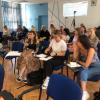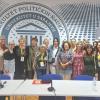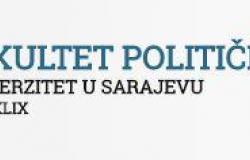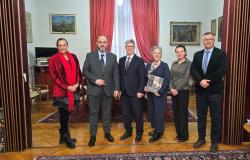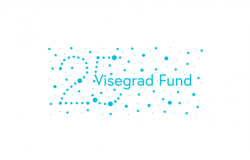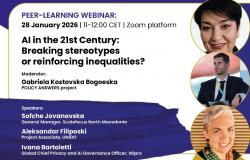Izvještaj o održanoj 2. Međunarodnoj ljetnoj školi “Innovative Social Work Research in Southeast Europe: Integrating Justice, Human Rights, and Civic Engagement”
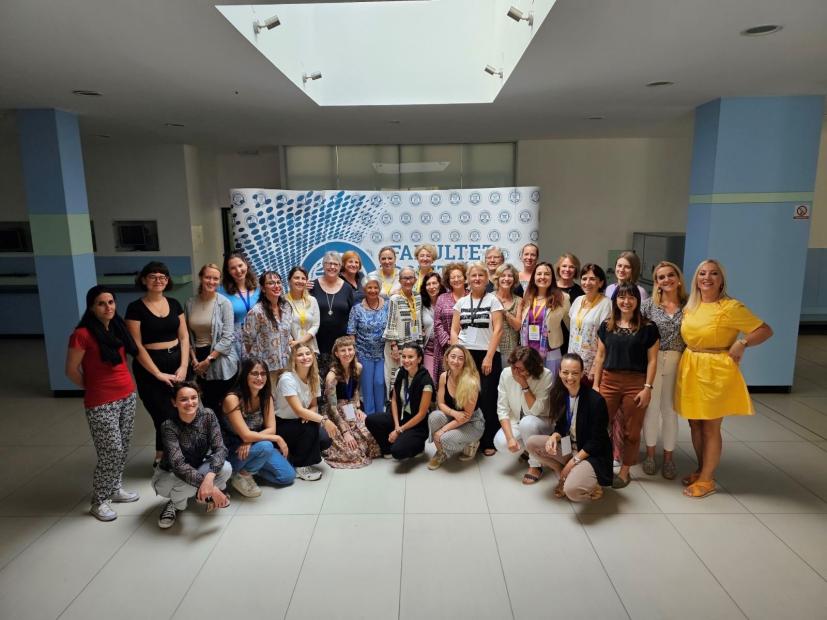
Drugo izdanje Ljetne škole “Innovative Social Work Research in Southeast Europe: Integrating Justice, Human Rights, and Civic Engagement”, pothvat organizacije Southeast Women's Academic Leadership Network, koju čine naučnice socijalnog rada i edukatori iz Albanije, Bosne i Hercegovine, Bugarske, Hrvatske, Grčke, Kosova, Sjeverne Makedonije i Slovenije, te SAD, u organizaciji Univerziteta u Sarajevu (Bosna i Hercegovina), pod kopredsjedanjem prof. Sanele Bašić, prof. Vjollce Krasniqi i prof. Barbare W. Shank, održano je od 3. do 7. septembra 2023. godine na Fakultetu političkih nauka Univerziteta u Sarajevu (vidi https://www.glsw-see.org/).
REPORT
2nd International Summer School: “Innovative Social Work Research in Southeast Europe: Integrating Justice, Human Rights, and Civic Engagement”
3– 7 September 2023, University of Sarajevo
The second edition of the Summer School “Innovative Social Work Research in Southeast Europe: Integrating Justice, Human Rights, and Civic Engagement”, an endeavor of the an undertaking of the Southeast Women’s Academic Leadership Network, comprised of social work scholars and educators from Albania, Bosnia and Herzegovina, Bulgaria, Croatia, Greece, Kosovo, North Macedonia, and Slovenia, and the US, hosted by the University of Sarajevo, Bosnia and Herzegovina, co-chaired by Prof. Sanela Bašić, Prof. Vjollca Krasniqi, and Prof. Barbara W. Shank took place 3-7 September 2023 at the Faculty of Political Science, University of Sarajevo (see https://www.glsw-see.org/).
The summer school is envisioned as an alternative space of exchange of knowledge and ideas among social work scholars, social work students and practitioners in the region of Southeast Europe which shall provide more meaningful learning opportunities on a new or suppressed knowledge and expertise and improve the quality of social work education in the region. As social work educators are expected to provide leadership for knowledge – building through development and testing of innovative approaches to emerging and current social challenges, with the objective of addressing critical practice and policy questions, the second summer school aimed to explore diverse methodologies that lead towards social change, democratization, and just citizenship across the Southeast Europe.
Prof. Annamaria Campanini, President of the International Association of Schools of Social Work, Prof. Darja Zaviršek, President of the East European Sub-Regional Association of Schools of Social Work along with social work educators’ members of the Southeast Women’s Academic Leadership Network provided lectures demonstrating the ways in which social work research community is extending existing and developing new epistemologies and pedagogies in social work education for equitable access to welfare, social development, and an actively engaged citizenry. The main topics covered during the summer school were: the roles and responsibilities of the higher education institutions in preparing critically mined and civically engaged citizens, key principles for managing one’s own research and professional life, the role of research for social work education and training, a rights- based approach to professional and organizational history, critical historiography of social work, narrative in social work education, research, practice and policy of youth reach approach, making social work research findings usable in practice, eco – feminism and social work, morally courageous research, return migration and reintegration, social entrepreneurship, social work education responding to democratic decline, professional capacities in social work services. The organized field visits to the History Museum of BiH, Forgotten Children of War and Srebrenica Memorial Center provided an innate understanding of the BiH’s social context and an opportunity to explore what does principles of human rights, justice and civic engagement might mean in a postwar and post-genocide reality. These issues were tackled by local/national and international experts who addresses the issues of memorialization (Oral History Project of the Srebrenica Memorial Center), memorialization and reconciliation, and feminist struggle for truth about past.
During the summer school the book “Human Rights in this Age of Uncertainty – Social Work Approaches and Practices from Southeast Europe” (Springer, 2022), co -edited by prof. Vjollca Krasniqi and prof. Jane McPherson, members of Women’s Academic Leadership Network, was officially launched. Its relevance for international social work education – according to prof. emerita Julia Watkins and prof. emerita Barbara Shank – lies in ‘engaging in the discourse around human rights, social justice, and rights – based approaches, and for connecting interpersonal practices (micro – perspectives) with community work, policy development, advocacy, and social action (micro – perspectives)’ (p.vi). The summer school was closed with the workshop on enhancement of leadership skills.
Through lecturers, fields visits and workshops and open and stimulating debates, the summer school strived to meet its major objective of increasing student’s critical thinking and civic responsibility to participate in the democratic life, to actively engage with social, economic, political, and environmental landscape in which they live, learn and practice.
At the closing ceremony, prof. Annamaria Campanini, President of the International Association of Schools of Social Work presented the award to prof. Sanela Bašić (University of Sarajevo, Faculty of Political Sciences, Department of Social Work) for her contribution to the advancement of social work education in the region.
The implementation of the summer school has been founded by the Dennis A. and Julia M. Watkins Foundation.
Conceptualized as a long-term endeavor, the summer school will continue evolving and “traveling” to the University of Sofia (Bulgaria) and University of Ljubljana (Slovenia) fostering collaborations and partnerships with social work schools, social work practitioners, students, communities, and institutions.





